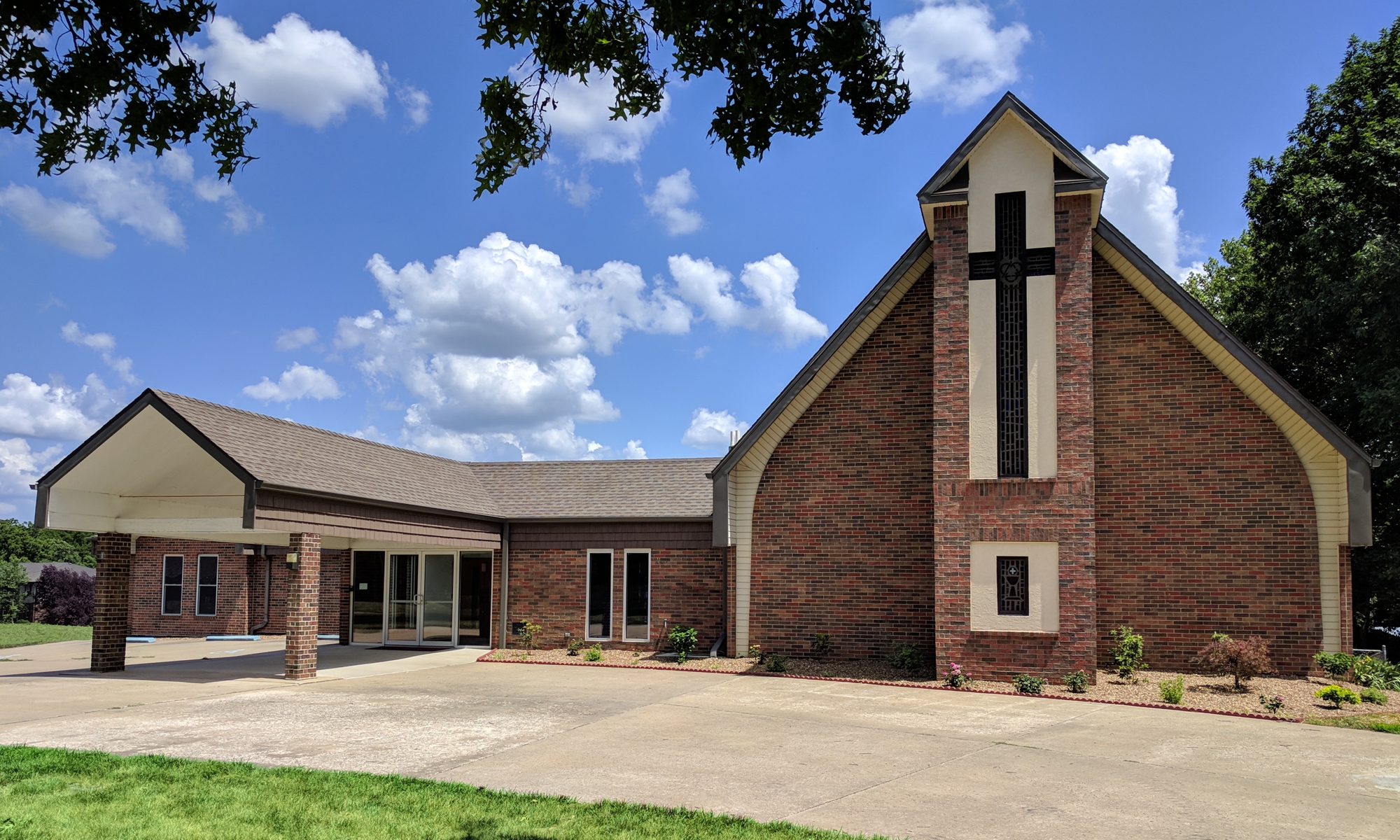
Lessons: Proverbs 4:10-23, Galatians 5:16-24, Luke 17:11-19
Hymns: LSB 568, 713, 587, 737, 637, 895
Grace, mercy, and peace to you from God our Father and our Lord and Savior, Jesus Christ. Amen.
In today’s Gospel, St. Luke reports that Jesus is on His way to Jerusalem. This echoes a statement made eight chapters earlier in Luke. There it is written, “When the days drew near for Him to be taken up, [Jesus] set His face to go to Jerusalem” (Luke 9:51). For Jesus is making His way to the holy city to serve as the Lamb of God to take away the sin of the world where He would be lifted up on the cross as the atoning sacrifice bearing the sins of the world in His Body.
As He makes His way toward Jerusalem, Jesus passes on the boundary between Samaria and Galilee. Both regions were part of the Northern Kingdom after Israel split following Solomon’s death in 931 BC. When the Northern Kingdom was captured by the Assyrians in 722 BC, Assyria deported many of the Jews and imported foreigners whom they conquered from other lands. Those new people living in the cities of Samaria were getting attacked by lions. The king of Assyria commanded that a Jewish priest from among their captives be sent to Samaria to teach the people how to worship the God of the Jews. These new people learned feared of the Lord, but they also served their own manmade gods. This false worship continued for generations all the way up to our Lord’s ministry (2 Kings 17:24-41).
The Jews were not happy that these foreigners continued to live in the Promised Land or that they served their false gods. These foreigners settled down and made homes for themselves. They became known as Samaritans, for they dwelt in the cities of Samaria in what was once part of the Northern Kingdom. As we heard last week with the Parable of the Good Samaritan, the Jews and Samaritans hated each other.
Yet what does Jesus find when He is along the Samarian border? He finds ten men suffering from a contagious skin disease. At least one of these ten is a Samaritan. The others are Jews. These lepers did not hate each other, despite the animosity that went back over 700 years.
What brought together these men from these two opposing groups? Did they receive sensitivity training? Or learn about diversity, equity, and inclusion? Or other tools to make them soft?
No, the thing that brought them together was affliction sent by God. Because they shared a common contagious disease, they put down their walls of hostility and were no longer at odds with each other. They found something in common and realized their years of opposition was meaningless. They depended upon each other. They lived together as brothers.
In the Bible, God has promised that He uses all things for the good of those who love Him and are called according to His purpose (Rom. 8:28). He uses affliction to draw opposing groups together and help them realize they had no reason to be warring. When life is effortless and good, it is easier to maintain animosity, hold grudges, or engage in the various works of the flesh described in today’s Epistle. But when we are met with affliction, then we realize that life is fleeting, that it is good to make amends, how trivial grudges are, and how important it is to love all the various people whom God has placed in our lives.
These ten lepers from differing pasts were now united as one due to their affliction. They did not just agree to disagree, but they, together as one, lifted up their voices and prayed to Jesus, saying, “Jesus, Master, have mercy on us.” They were in this together.
Then Jesus told them to do something that seemed rather unthinkable. He appeared to brush them off when He said, “Go and show yourselves to the priests.” He didn’t say, “Be healed.” He didn’t extend His healing hand and touch them. Instead, Jesus said, “Go.”
Now, He wasn’t sending them away hopeless. You see, the Law of the Old Testament outlined certain procedures that God’s people had to follow when they contracted leprosy and when they were healed of it. Both involved examinations by the priest. So, when Jesus told them to go and show themselves to the priest, He was indicating that they had good reason to do so—that they would be healed of their leprosy.
Thus, the ten lepers all left our Lord’s presence in faith that they would be healed. God worked two amazing wonders with these lepers. First, He worked saving faith in them—faith which wholeheartedly trusted the Word of Jesus. Second, He healed them of their leprosy, for as they went on their way to see the priest, they were healed. Both faith and healing are the miraculous working of God.
Put yourself in their shoes. Would you have left in faith?
Would you have even asked for healing in the first place? Remember, “God tenderly invites us to believe that He is our true Father and that we are His true children, so that with all boldness and confidence we may ask Him as dear children ask their dear father.” They boldly asked—something we are sometimes too timid to do. We foolishly think we’re bothering God when we ask Him to remove affliction from us. If you think you shouldn’t ask for temporal relief, remember what St. Paul did when he had that thorn in the flesh. He pleaded with God three times that God would remove it from him. In that case, God chose to let Paul live with his unnamed thorn, saying, “My grace is sufficient for you, for my power is made perfect in weakness.” Paul, seeing the value of affliction, concluded, “I will boast all the more gladly of my weaknesses, so that the power of Christ may rest upon me. For the sake of Christ, then, I am content with weaknesses, insults, hardships, persecutions, and calamities. For when I am weak, then I am strong.” (2 Cor. 12:7-10). Paul could have found fault in God’s response, but instead Paul trusted God’s divine plan for him and recognized the will of God is always best.
The lepers, too, could have found fault in Jesus’ response. They could have grumbled that He was sending them away without first healing them. But they did not. They were filled with joy over the promise of being healed, for they knew—and trusted—that Jesus will not fail them or lie to them.
Why do we sometimes find it so easy to find fault with the Lord’s ways? He can see everything from a grand perspective, but we can only see things in the here and now. God’s knowledge and wisdom are infinite, but ours is limited. In our sinfulness, we may find fault in God’s Law, figuring that certain sins should no longer be viewed as sin. We may find fault with the church God established for us or the pastors He sends. We may find fault in God’s way of salvation by grace through faith in Christ alone.
One reason why we sometimes find fault in God’s ways is weak faith. We may not trust that He will do it, or that His ways are the best for us. The lepers could have been like Naaman who complained that he had to dip seven times in the lowly Jordan River to be cleansed of his leprosy instead of the mightier rivers of Syria. But the ten lepers were not like Naaman; instead, they trusted God’s will and Word.
We sometimes find fault with God’s ways because we feebly attempt to be in charge. We want things to be done in the way we want, not submitting to God’s wonderful and better ways. We don’t see God’s grand plan or the future as He does. Often, we find fault in God’s ways due to sheer ignorance. Refusing to hear and heed the Word of God or substituting God’s wisdom with the lies of the world, we figure God should then alter His plans to suit our ignorance.
Jesus also teaches us to take up our crosses and follow Him. This is something hard to do. Who wants to carry crosses? Who wants to suffer on account of being Christian? We want things to be simple and easy. But the results aren’t good. In wanting to get from point A to point B quickly, we sit in cars instead of walking. Our inactive lifestyles make us fat and weak. Many tout how AI can do all sorts of things for us, like research, write papers, and generate art. Then humans will lose their skills to think. God can send affliction, crosses, and trials to exercise our faith, to draw us to Him, and instill thanksgiving in us.
St. Luke reports that only one leper returned to give thanks. He was a Samaritan. In thanksgiving, the leper recognized what Jesus had done for him and came back to be in the presence of Jesus.
That’s what thanksgiving does. Look at what Jesus did for you. He left His throne from above, joined His divine nature to humanity by becoming a Man, took full responsibility for every sin of yours, went to the cross, and paid for all your sin there. Jesus suffered immense torture and pain as He was mocked, beaten, and crucified. Rising from the dead, He justifies you and grants you the victory.
Knowing that Jesus has reconciled you to your Father in Heaven, opened to you the way of everlasting life, and blesses you by being added to God’s holy family, do you not also desire to be in the presence of Jesus, like that one Samaritan leper?
Our thankfulness for the saving Gospel is shown most clearly when we joyfully gather in God’s house each Sunday. Yet sometimes people figure they don’t get much out of the Divine Service. While that cannot be further from the truth, if it were true at least that person could come to give thanks. The Divine Service is filled with words of thanksgiving, as we sang in the Gloria Excelsis, as we receive the Sacrament, after receiving the Sacrament, and in our hymnody. So sing boldly with thanksgiving, for you are numbered among the redeemed!
For we have received the mercy of God, have been reconciled to God our Father, and have been met with the grace of Christ. What blessings we have as God’s forgiving, baptized children! Amen.
The peace of God which passes all understanding keep your hearts and minds in Christ Jesus to life everlasting. Amen

